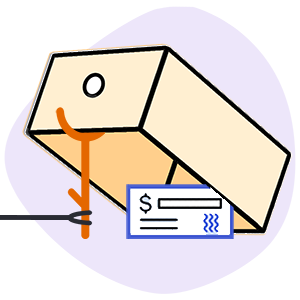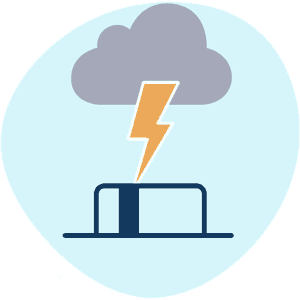TRPN: How to Fight the Network's Discounts

We’ve warned providers about the disturbing practices of Three Rivers Provider Network (TRPN).* We’ve also written about how providers may be able to demand that TRPN terminate their incomparably bad discount reimbursement contract.
However, even if TRPN agrees to terminate the contract, providers should not be surprised if claims administrators continue to apply the discount. Improperly taking money from providers who choose to treat injured workers is systemic in the unruly world of workers’ comp, where laws and regulations are as likely to be ignored as enforced.
Below, we share appeal language providers can use to push back and demand correct reimbursement.
Further, we invite providers affected by TRPN to share the details of their plight with daisyBill. Tell us which claims administrators are using TRPN discounts to reduce your payments. We will (anonymously) publish the details.
Together, we are stronger.
TRPN’s Shady Discounts
TRPN baits doctors into their discount reimbursement agreement with a “participation payment” that could easily be mistaken for a standard reimbursement and Explanation of Review (EOR). Providers have unwittingly deposited these checks, only to be surprised by reductions in payment as the claims administrator applies the TRPN contractual discount.
Naturally, we advise providers nationwide to never, ever accept money from TRPN. But if your practice accidentally deposits a TRPN check, there are two courses of action:
- Within 90 days, return the funds to TRPN with a written demand to terminate the alleged agreement, effective immediately.
- If 90 days have elapsed, email TRPN with a demand to terminate the alleged agreement, effective immediately.
Of course, free money is a hard thing to quit — which means claims administrators will probably continue to apply the TRPN discount to providers’ bills regardless of whether the provider is (or was) a member of the network. In California, that’s where Second Review appeals come in.
Appealing TRPN Discounts
Second Review appeals save practices millions annually, by demanding claims administrators reverse improper payment denials and reductions.
To give your Second Review appeal against a TRPN discount the best chance of success, we suggest including specific language related to California Labor Code Section 4609, which governs Preferred Provider Organizations (PPOs) and other networks’ discount reimbursement contracts.
§4609 requires claims administrators to, on the EOR, identify the specific network that supposedly entitles the claims administrator to a discount. If the EOR does not list a network with which the claims administrator has a valid agreement that applies to your practice, you have the right to demand proof of the discount’s validity.
Below is the exact language used by daisyCollect when disputing incorrect reductions on behalf of our clients:
The billing provider disputes the reduced rates that the claims administrator paid for services reported in the EOR. No contract exists between entities that allows the claims administrator to reduce the reimbursement rates paid to the provider.
Per Labor Code Section 4609(c)(2) the provider is requesting the entity demonstrate the entitlement to a reduced rate within 30 days. Failure to timely demonstrate that entity is entitled to the reduced contracted rate shall both:
1. Render entity responsible for the difference between the OMFS rate(s) and the reduced contracted rate(s) used in paying the bill, which amount(s) shall be due and payable within ten (10) days of receipt of written notice, and
2. Bar entity from taking any future discounts without express written consent from the provider.”
The above language is appropriate for any mysterious PPO or other network discount, where the claims administrator has failed to identify the specific agreement applied to the bill.
If your practice believes a contractual discount to have been applied improperly, push back. California workers’ comp’s appeals process is flawed, but it’s often the only line of defense against nefarious practices like those exhibited by TRPN — and the claims administrators that use their discount.
* Correction, August 17 and 29, October 6 2023: An earlier version of this article contained a factual error regarding TRPN’s ownership that has since been corrected.
daisyBill makes workers’ comp billing easier, faster, and less costly. Request a free demonstration below.
REQUEST DEMO
DaisyBill provides content as an insightful service to its readers and clients. It does not offer legal advice and cannot guarantee the accuracy or suitability of its content for a particular purpose.


.gif)

.gif)
Excellent! I just sent a letter to Omaha National for this exact situation. They cited ACPN and for the same patient on a different DOS they cited PHS as the PPO network we are contracted with to get the reduction. In an email they said it was one of their affiliates. I said, No! Show me the signed contract. They said they don't have a signed contract because it is with one of their affiliates. Skipped them. Sent letter directly to Omaha National demanding payment. But I thank you for giving me the 4609 labor code as I will use that in my next dispute against these robbers/thieves.
We dropped our contract with Anthem WC because in that contract it stated any of their affiliates were allowed to use the payment reductions. They tried to scare us by saying we would be removed from all the MPN's which to me is just what we wanted. We are located in a rural area so we still get WC patients. We are now sometimes contacted by the third party to schedule a patient but we tell them up front we will need to bill directly to the payor because we are out of network. We just have to make sure we get IN WRITING on the authorization that we are "out of network". When we get that in writing then we will schedule the patient. So far this is working wonderfully for us. We are getting paid per the OMFS. What a difference in the payments we get. So, I recommend dumping the MPN's they are just money hungry third parties that shouldn't be involved with WC in the first place. It has taken us awhile to figure all this out but with the help from DaisyBill it has made all the difference. It's a good feeling to have the upper hand for a change.
We have also had commercial insurances reduce payments under PPO's that we have no contracts with. They told me when I questioned the reduction asking who Stratose Inc. was that they used to apply the discount. They told me we signed a 45.00 payment reduction for each claim. I said let me have a copy of that signed contract. Whoops, nope, they do not have that. Of course they started ditching my hone calls. I knew they didn't have it because I knew we never signed an agreement of 45.00 off each claim. I filed payment disputes on each and every claim we had and they have made settlement offers that I have agreed too. You really got to watch the payors they will try anything and everything to avoid paying you what you are entitled to. Thanks again DaisyBill!!
In addition to everything stated in this article, the PPO Network OFTEN times isn't the actual network applying the reduction. For example, if your EOB reflects "Prime Health-External," the PPO Network isn't actually Prime Health. Prime Health does the pricing for the actual network which could be HealthSmart. Same thing with Triton Healthcare. The EOB will reflect that the network is Triton Healthcare, but Triton isn't a network at all. They "Manage" the networks so the actual network could be HealthSmart, CareWorks or any other POO Network they "Manage." In my opinion, the actual PPO Network is purposely left off the bill to mislead providers on purpose.